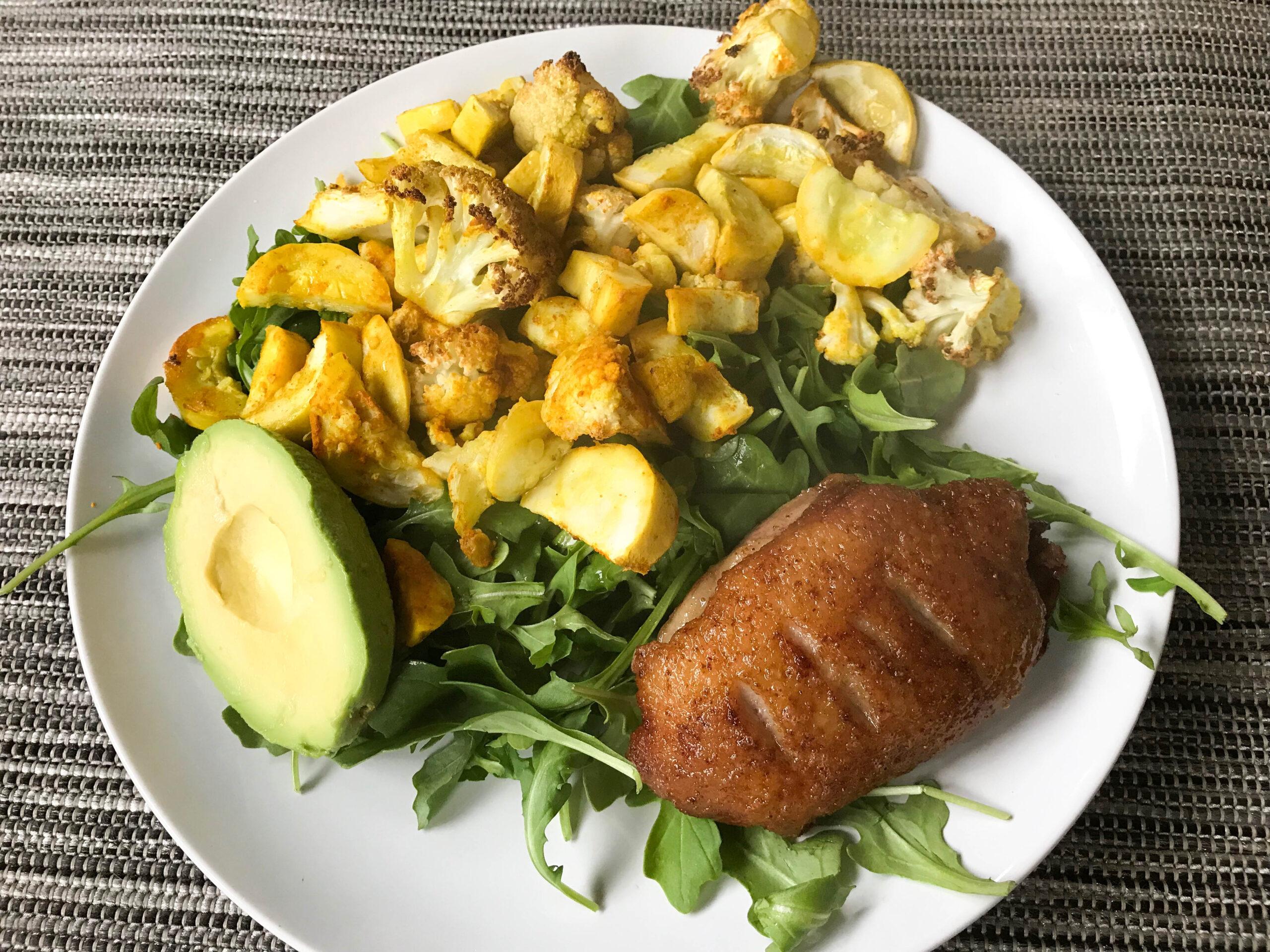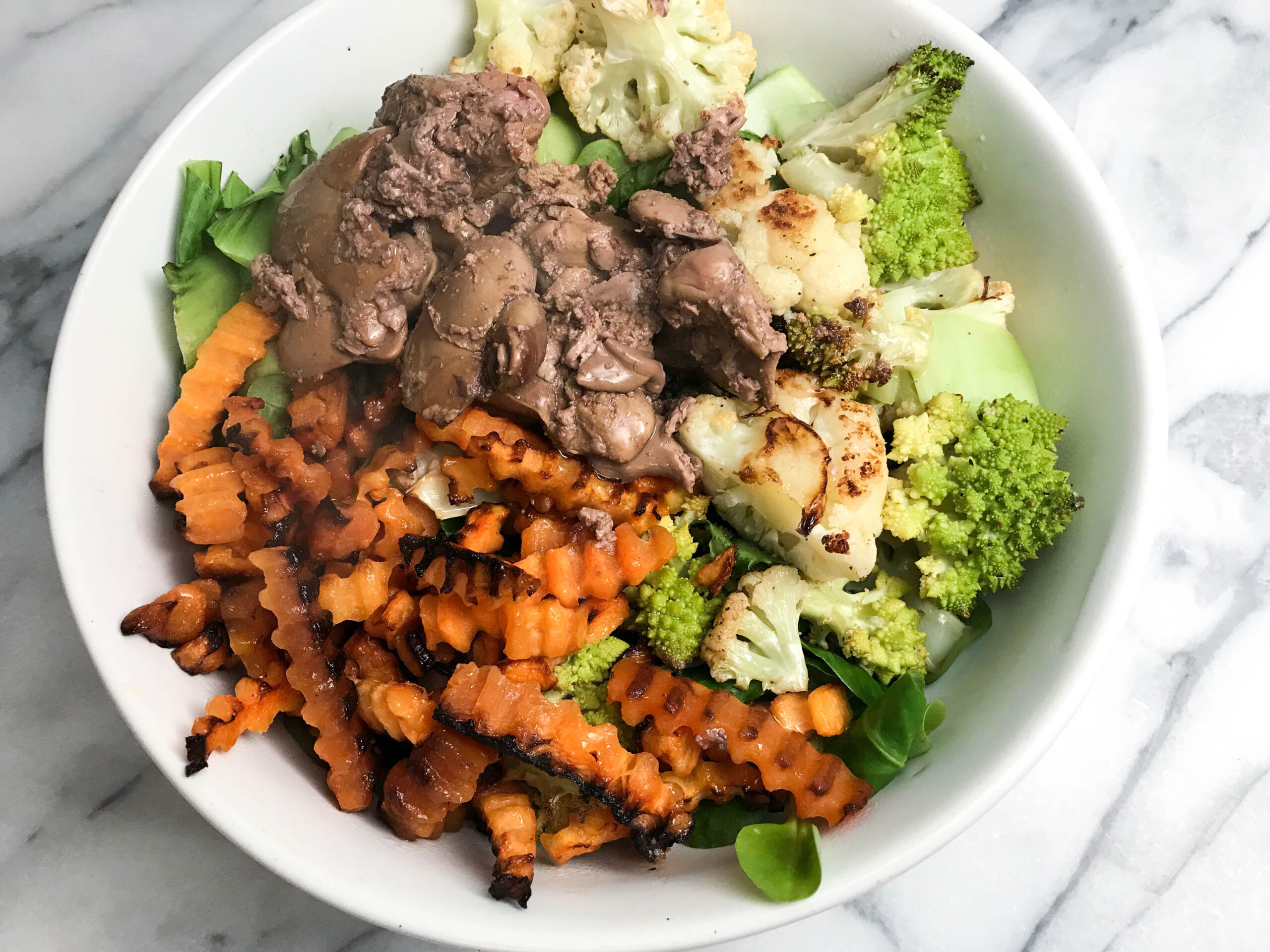
Over the years, I have tried a lot of different techniques to optimize my digestion. What I found, though, is that I really saw the biggest improvement from changes that I originally overlooked and thought of as “too easy.” Dealing with digestive issues can be complicated, and that’s why it’s always so important to start with the basics. If you don’t have the basics down, then you’ll never be able to tackle the more complicated parts.
Something I always focus on with my clients is their mealtime ritual, because the way we eat is just as crucial as what we eat. If you want to digest your food properly, the way you eat matters. Unfortunately, most Americans do not eat their meals in a way that supports their digestion, and this can lead to serious symptoms. Bloating, diarrhea, constipation, indigestion, burping, gas, general discomfort – poor mealtime practices are a main contributing factor to all of these. In some cases, it is the sole cause.

Because I so often notice 99% of people around me eating in a way that will do anything but support their digestion, I wanted to share some basic, simple tips that will help you digest your food better, and therefore feel much better overall. A lot of these habits will also help with satiety, but that could be a whole other blog post! Don’t overlook any of these. I can’t tell you how many of my clients have told me that just focusing on a better mealtime “routine” with the tips I’m about to share has completely transformed their digestion.
- Only eat in a parasympathetic state. Our parasympathetic state is called the “rest and digest” mode for a reason – we must be in parasympathetic mode in order to properly digest our food! What does this mean? We need to be calm and relaxed at mealtime. Our body will not secrete the proper enzymes, hormones, and acids to break down our food if we are not in a relaxed state that tells the body it’s okay to put its resources towards digestion. When you’re in a stressed-out state, the body shuts off those digestive processes. If you were running away from a tiger, do you really think your body would be worried about putting energy towards digestion? Nope – it’ll deal with that later, when the threat is gone. Our bodies don’t know the difference between the stress from a tiger chasing you and the stress from that big project you have due. It’s all stress.
- There are a few techniques I suggest to get you in a parasympathetic state. First of all, always eat sitting down. If possible, eat on the floor. I always eat on the floor when I’m at home, because I can physically feel it put my body into a parasympathetic state. If you’re standing up, your body is still getting the signal that it should be ready to GO at any time. Let your body know that it’s time to relax and digest – it won’t need to “run away from a tiger” anytime soon.
Second, I really suggest taking a few deep breaths before you eat. Many people feel “weird” doing this, but you’ll get used to it. I suggest taking five really deep breaths in through your nose and out through your mouth before you start eating. Long, slow, deep breaths. Once again, this will help put your body in a parasympathetic state. You will physically notice the difference in your body after you do this, and you’ll feel much more relaxed. - Eat mindfully. I’m sure you’ve heard that a million times, but it’s important. Digestion starts with the brain when we see our food, smell it, and get ready to taste it. Utilize all of your senses to send signals to your brain that it’s time to digest – this will begin the cascade of enzymes and hormones secreted during the digestive process to help properly break down our food. If you’re not really being mindful of what’s in front of you, your brain isn’t getting or sending the proper signals for digestion.
The standard advice for being mindful and being in a calm, relaxed state is to put away all distractions and to just eat alone with your meal, focusing only on your food. No phone, no TV, no books, no nothing. I understand where this advice is coming from, but I don’t necessarily agree with it in all cases. My advice is to do whatever you need to do to be fully present, relaxed, and mindful.
For some people, that might mean that they really do need to eat alone with nothing else but their meal in front of them, but that might not be true for everyone. This requires you to be totally honest with yourself, though. If sitting down with a meal and a good book makes you happy and relaxes you, and you’re able to read while also being present with your meal, then I say go for it. Same with TV or your phone. For me, personally, the TV relaxes me and doesn’t prevent me from paying full attention to my meal, and eating alone in silence actually stresses me out. My phone also stresses me out and distracts me too much. For that reason, I put my phone away while I’m eating, and I usually put something on TV while I enjoy my meal. This might be totally opposite for you. Just do whatever works for you to be fully present and relaxed. This is another reason why I like to sit on the floor! If you’re not able to pay complete attention to every bite, taste, texture, and smell of your food, then you need to eliminate whatever is distracting you from doing so. - Chew thoroughly and completely, and take your time with your meals. Chew each bite at least 30 times. Whoa. 30 times? Yup, at least. 30-40. Your food should be broken down as much as possible in your mouth to make the digestive process easier later on. If you’re having a smoothie, find a way to chew it. Take your time – meals will be a much slower process if you’re doing this correctly. Your food should almost be like liquid before you swallow it! The process of chewing and the secretion of saliva also stimulate important enzymes and hormones that aid in digestion further down the line. Salivary amylase, an enzyme that breaks down carbohydrates, is only secreted in the mouth. If you don’t chew your carbohydrates thoroughly enough before swallowing, then they won’t get fully broken down in your stomach. Chewing this much will take you longer than you’re used to, but you’ll get used to it. This is one practice that makes one of the biggest differences in my clients’ digestion. You might have to count how many times you’re chewing at first while you get in the habit of chewing this much, but pretty soon it will become automatic. I recommend putting down your fork in between every bite. SLOW DOWN. Too many people practically inhale their food and don’t take the time to fully chew it. This often happens when you’re out to a meal with friends or eating with family, and you’re all chatting. When you’re distracted and talking, it’s all too easy to basically swallow your food whole. FIGHT THE URGE! Your stomach will thank you later. On the plus side, when you chew more, you get to enjoy your meal for longer!
- Don’t drink water with your meals. This is a game changer – trust me. If you have to take supplements with your food, only drink enough water to take those pills, but not more than you need. Drinking water with your meals can dilute your stomach acid and make it harder for the body to break down your food in the stomach, causing problems throughout the rest of the digestive process. When your food doesn’t get broken down completely, the leftover carbohydrates will ferment, proteins will putrefy, and fats will rancidify. It’s best to drink water in between mealtimes so it doesn’t disrupt the digestive process. I also recommend not drinking immediately before or after meals. Try to leave 30 minutes before and after, if you can. If not, at least 15. I’ve also found that people tend to drink water with their meals as a way of getting their food down, instead of actually chewing their food! This is a really poor habit to have, so removing water from your meals will help force you to properly chew your food.
- Incorporate apple cider vinegar into your meals. You want to use raw, organic apple cider vinegar with the mother. I always try to just put a bit on top of my meals as a dressing or incorporate it into whatever dressing I’m already putting on my meal. If you don’t want to do that, I suggest putting a tablespoon of ACV in a few ounces of water and drinking that about 15 minutes before your meal. Contrary to popular belief, most people’s digestive issues are because they have too little stomach acid, so they are unable to properly break down their food. Apple cider vinegar is one of the best ways to help naturally increase stomach acid.
- Incorporate bitter foods into your meals. Bitter foods help to stimulate the release of gastric acid, enzymes, and bile flow, which are all incredibly important in the digestive process. Try adding some bitter greens like dandelion greens, arugula, kale, radicchio, and endive into your meals. If you won’t go for the greens, how about some cacao nibs? 😉
- Walk around after eating. Going on a quick walk around the block or simply making a point to get up and move in your own home (like moving around the kitchen to clean up, for example) will help with peristalsis and also has been shown to help balance your blood sugar after eating. Gravity does help with the digestive process to an extent, and moving around can help things move through the digestive tract more easily.

These may seem like small changes, but they can make the world of a difference. Unfortunately, most of us have gotten into poor mealtime habits without even realizing how much it affects our digestion. Instead of inhaling our food, hardly chewing, being distracted by what’s around us, and gulping down our food with water, we should make a point to have calm, relaxing mealtimes and be fully present with our food, chewing thoroughly and completely, and taking our time.

